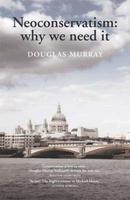Movement

photo credits: Wikimedia Commons
Conservatism is a cultural, social, and political philosophy that seeks to promote and to preserve traditional institutions, customs, and values. The central tenets of conservatism may vary in relation to the culture and civilization in which it appears. In Western culture, depending on the particular nation, conservatives seek to promote a range of institutions, such as the nuclear family, organized religion, the military, the nation-state, property rights, rule of law, aristocracy, and monarchy. Conservatives tend to favour institutions and practices that guarantee social order and historical continuity.Edmund Burke, an 18th-century Anglo-Irish statesman who opposed the French Revolution but supported the American Revolution, is credited as one of the main philosophers of conservatism in the 1790s. The first established use of the term in a political context originated in 1818 with François-René de Chateaubriand during the period of Bourbon Restoration that sought to roll back the policies of the French Revolution and establish social order.Conservative thought has varied considerably as it has adapted itself to existing traditions and national cultures. Thus, conservatives from different parts of the world—each upholding their respective traditions—may disagree on a wide range of issues. Historically associated with right-wing politics, the term has been used to describe a wide range of views. Conservatism may be either more libertarian or more authoritarian; more populist or more elitist; more progressive or more reactionary; more moderate or more extreme. Source: Wikipedia (en)
associated_with_this_movement 4
associated_with_this_movement 12
- Neoconservatism: Why We Need It
- Anleitung zum Konservativsein
- The Reactionary Mind
 How to Be a Conservative
How to Be a Conservative- La tradició catalana
- The Three Rs: The Racist Religious Right and other short stories
- Reflections on the Revolution in France
- The New Right in Chile, 1973-1997
- Keepers of the Language: The Political Language of Conservatism in Great Britain and West Germany, 1945–1980
- Radikalisierter Konservatismus
- Rückkehr zum starken Staat?
- Die Reaktion in Deutschland
Movement - wd:Q7169







